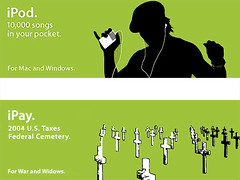On the Ballot: jobs, public services, taxes, military spending
By Cole Harrison, Massachusetts Peace Action
Massachusetts Peace Action is an important part of a coalition of Massachusetts community, labor, and peace organizations that are now working to put a non-binding referendum on the November ballot in districts across Massachusetts.
Called the “Budget for All Referendum”, the public policy question or referendum addresses jobs, public services, taxes, military spending, and the Afghanistan war. It is named the “Budget for All” (B4A) after the Congressional Progressive Caucus’ anti-austerity budget proposal which received 82 votes in the House of Representatives in March. Five Massachusetts members of the House voted Yes on the B4A – but five more voted No. The referendum campaign will increase pressure on those five to support next year’s CPC budget.
The case for the Budget for All was recently strengthened by a recent study. The Political Economy Research Institute at the University of Massachusetts, Amherst, has regularly published figures showing that U.S. military spending is a poor job creator – generating fewer jobs than the equivalent amount of spending on education, healthcare, green projects, or even tax cuts. Now, “Military Spending and Jobs in Massachusetts,” by PERI author Heidi Garrett-Peltier and Peace Action’s Prasannan Parthasarathi, shows that the same is true in the state of Massachusetts – more jobs would be created in the state if military spending were instead used to bolster schools, healthcare, transportation, and the environment.
The Budget for All coalition is an outgrowth of last fall’s Super Committee fight, when Massachusetts housing, labor, human service and peace groups joined to prevent Senator Kerry from making a bad deal with budget-slashing Republican zealots. It also continues the work of the 25% Campaign which has called for cutting the military budget 25% to adequately fund human services and jobs creation.
The coalition’s housing and community groups are strongest in Boston and some other urban areas, while Mass. Peace Action and its peace movement allies bring depth in suburbs and small towns. The campaign is also helping Peace Action mobilize its supporters statewide behind a common project. With our work on this project, Peace Action is solidifying our alliance with groups whose fight against militarism and austerity is a matter of survival – an alliance which will continue to strengthen our agenda in the years to come. We are also building our capacity to engage in electoral work.
We expect the question will be on enough districts to give some 750,000 Massachusetts voters the opportunity to vote on the question in November. In the fall, we’ll be campaigning for a “Yes” vote with educational events, rallies, and discussions in the media and in spring 2013 we’ll take it to the State House.
The question reads:
Shall the state Representative (or Senator) from this district be instructed to vote in favor of a resolution calling upon the Congress and the President to:
1. Prevent cuts to Social Security, Medicare, Medicaid, and Veterans benefits, or to housing, food and unemployment assistance;
2. Create and protect jobs by investing in manufacturing, schools, housing, renewable energy, transportation and other public services;
3. Provide new revenues for these purposes and to reduce the long-term federal deficit by closing corporate tax loopholes, ending offshore tax havens, and raising taxes on incomes over $250,000; and
4. Redirect military spending to these domestic needs by reducing the military budget, ending the war in Afghanistan and bringing U.S. troops home safely now.



